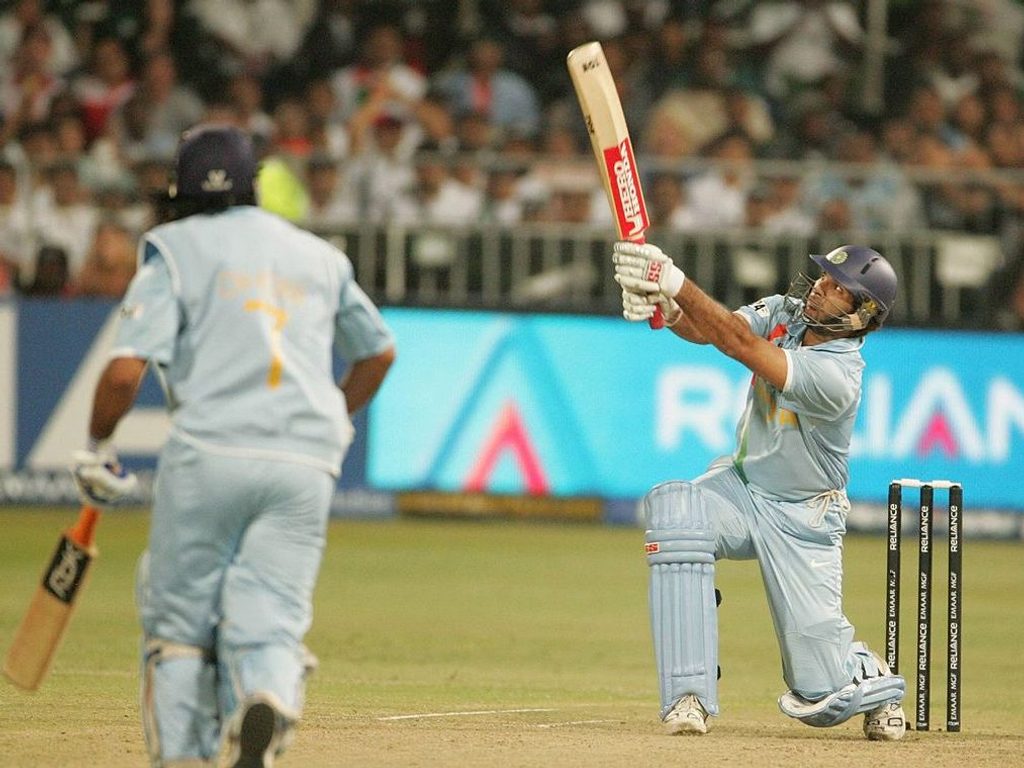
India’s Yuvraj Singh has decided to retire from all forms of international cricket, bringing down the curtain on a celebrated career that began back in 2000. He has also called time on his Indian Premier League career.
At a press gathering in Mumbai, Yuvraj stated that it was time to move on after a “roller-coaster ride”.
“I have lived every moment of the time spent on a cricket pitch, but now it is time to say goodbye, and walk away,” he said. “It was a beautiful roller-coaster ride and a beautiful story, but it had to come to an end.”
“It was a love-hate relationship with the sport, in retrospect. I don’t think I hated the game, because the love I have for it today, which will remain a constant till the end of life. I can’t really express in words what is that feeling. This game taught me how to fight, how to fall, to dust myself off and get up again and move forward.
[breakout id=”1″][/breakout]
Yuvraj’s last international game for India was in June 2017, in an ODI against the West Indies, before he fell out of the reckoning. In all, the 37-year-old played 304 ODIs, 58 T20Is and 40 Tests, and gained a massive following for his attacking style of batting, as well as his crafty left-arm spin. The batting-all-rounder may still turn out for other T20 franchises around the world, subject to the BCCI granting him permission.
The crowning glory of his career, by his own admission, was the 2011 World Cup win, where he was named the Player of the Tournament, scoring 362 runs and taking 15 wickets.
“Winning the 2011 World Cup, being the Man of the Series, getting four Man of the Match awards is all I could dream. Then came the harsh reality – cancer.”
[caption id=”attachment_108939″ align=”alignnone” width=”800″] Yuvraj was the Player of the Tournament in the 2011 World Cup[/caption]
Yuvraj was the Player of the Tournament in the 2011 World Cup[/caption]
In late 2011, Yuvraj was diagnosed with a cancerous germ-cell tumour in his left lung and had to undergo chemotherapy in the USA: “It was like I had touched the sky, and was falling down at the speed of light. I was at the peak of my career.”
He returned to the Indian set-up as quickly as September 2012 but failed to seal a regular place. Between December 2013 and January 2017, Yuvraj was out of ODI reckoning, before returning for a brief stint, scoring a career-best 150 against England, and also featuring in the Champions Trophy.
“I have failed more times than I have succeeded, but I never gave up, and will never give up, till my last breath, and that’s what cricket has taught me. I gave my blood and sweat to the game once I got on to it, especially when it came to representing my country.”
His exploits in the T20 format were best highlighted by his stunning run in the 2007 T20 World Cup, where he scored two fifties, against England and Australia, including smashing six sixes off one Stuart Broad over.
[caption id=”attachment_108938″ align=”alignnone” width=”800″] Yuvraj Singh’s knock featuring six sixes in one over in 2007 was one of his major career highlights[/caption]
Yuvraj Singh’s knock featuring six sixes in one over in 2007 was one of his major career highlights[/caption]
In his first-ever innings for India, an 18-year-old Yuvraj displayed tremendous promise, scoring 84 against Australia in 2000. A turning point came in the finals of the Natwest series in 2002, when he stitched a memorable 121-run partnership with Mohammad Kaif in India’s two-wicket win. He was included in the 2003 World Cup squad and soon became a linchpin of the ODI side’s middle order.
In the latter half of the 2000s, Yuvraj’s stocks kept rising in limited-overs cricket, as he combined with MS Dhoni in several successful ODI run-chases. He debuted in Tests in 2003, and played 40 games, but couldn’t translate the same success in the longest format, failing to find space in a packed middle order.
[breakout id=”0″][/breakout]
“I was unfortunate not to play 40 more Tests,” he said. “I was batting at No.6, averaged 35. Would have loved to have had an average of about 40. There are ifs and buts, but I gave it my all.”
Yuvraj retired with 8,609 ODI runs, currently the seventh-highest by an Indian batsman. Along with the several names that he mentioned, Yuvraj thanked Sourav Ganguly, his first international captain, for giving him a place in India’s turn-of-the-millennium ODI revamping.
“The adrenaline rush, playing for India, singing the national anthem before each game, touching the Indian flag, stopping every run for the team, or scoring every run for the team, was a completely different high. To be part of history, that was made after 28 years, I mean, honestly, what more could I ask for?”








